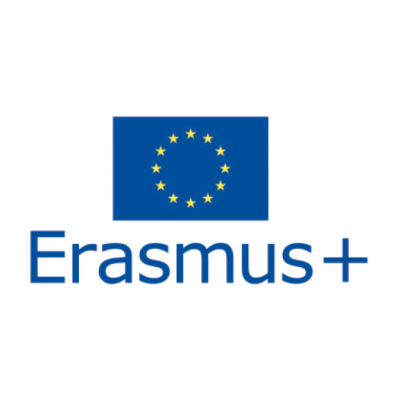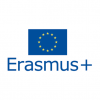
Centres of Vocational Excellence
Deadline: Feb 20, 2020
CALL EXPIRED
CALL EXPIRED
Clusters
Entrepreneurship and SMEs
Social Affaires and Inclusion
International Cooperation
Development and Cooperation
Education and Training
Higher Education
Erasmus+
Youth Exchanges
Youth Workers
The overall objective of the call is to support the establishment and development of transnational cooperation platforms of Centres of Vocational Excellence (CoVEs) to connect Centres operating in a given local context at European level. The transnational cooperation platforms will bring together CoVEs that:
-
— Share a common interest in specific sectors or trades (e.g. aeronautics, e-mobility, healthcare, tourism, etc.), or
- — Develop together innovative approaches to tackle societal, technological and economic challenges (e.g. climate change, digitalisation, artificial intelligence, sustainable development goals, integration of migrants, supporting learners with disabilities/special needs, upskilling people with low skills and/or low qualification levels, etc.).
The platforms will create world-class reference points for vocational training. They will be inclusive and either bring together existing CoVEs in different countries, or expand the model by linking well-established CoVEs in one country with partners in other countries, that intend to develop CoVEs in their local eco-system, thus contributing to ‘upward convergence’ of VET excellence.
The CoVEs will adopt a bottom-up approach to excellence where VET institutions are capable of rapidly adapting skills provision to evolving local needs. They aim to bring together a set of local/regional partners such as initial and continuing VET providers, tertiary education institutions including universities of applied sciences and polytechnics, research institutions, science parks, companies, social enterprises, chambers and their associations, social partners, sectoral skills councils, professional/sector associations, national and regional authorities and development agencies, public employment services, etc.
Projects must provide evidence that they aim to:
-
— Establish strong and enduring relationships at both local and transnational levels, between the VET community and businesses, in which interactions are reciprocal and mutually beneficial, and
-
— Integrate activities, build reflexive relationships between the various activities and services, and
-
— Be firmly anchored into wider frameworks of regional development, innovation and/or smart specialisation strategies. These can be either existing strategies (to be clearly identified) or being developed in the context of the project (describing how the project contributes to those strategies).
2. Partnerships
The partnership shall include at least eight full partners from a minimum of four Erasmus+ Programme countries (including at least two Member States of the European Union).
Each country must involve:
a) at least one company, industry or sector representatives (e.g.chambers or trade associations), and
b) at least one vocational education and training provider (at secondary and/or tertiary level(1)).
One of the partners above will be the coordinating organisation, applying for the Erasmus+ grant on behalf of the partnership.
Further composition of the partnership should reflect the specific nature of the proposal.
The Erasmus+ Programme countries are the following:
— The 28 Member States of the European Union: Austria, Belgium, Bulgaria, Croatia, Cyprus, the Czech Republic, Denmark, Estonia, Finland, France, Germany, Greece, Hungary, Ireland, Italy, Latvia, Lithuania, Luxembourg, Malta, the Netherlands, Poland, Portugal, Romania, Slovakia, Slovenia, Spain, Sweden, the United Kingdom (2);
— The non EU Programme countries: Iceland, Liechtenstein, Norway, Republic of North Macedonia, Serbia, Turkey.
Organisations from Erasmus+ Programme and/or Partner countries (3) can be associated partners, to the extent it is demonstrated that their participation brings an added value to the CoVE. For contractual management issues, associated partners, being from Programme countries or Partner countries, are not considered as part of the project partners, and they do not receive funding. However their involvement and role in the project and different activities have to be clearly described.
3. Activities
Activities must start on 1 October 2020 or 1 November 2020. The duration of the projects is 4 years.
Centres of Vocational Excellence are characterised by adopting a systemic approach through which VET institutions actively contribute to co-create skills ecosystems, together with a wide range of other local/regional partners. CoVEs are expected to go far beyond the simple provision of a quality vocational qualification.
Features that characterise CoVEs include a set of activities grouped under three clusters (see section 2.2 under the Applicants’ Guidelines).
The project must include relevant deliverables linked to:
— at least 3 activities related to Cluster 1—Teaching and learning, and
— at least 3 activities related to Cluster 2—Cooperation and partnership, and
— atleast 2 activities related to Cluster 3—Governance and funding.
The list is non-exhaustive, and applicants can include other activities. These must demonstrate, though, that they are particularly appropriate to meet the objectives of the call and identified needs, and must be considered and presented as part of a coherent set of activities.
Projects are required to apply EU wide instruments and tools whenever relevant.
-
(1) However, applications can not include only activities that target exclusively learners at tertiary level; applications that focus on VET at tertiary level (EQF levels 6 to 8) must include at least one other VET qualification level between EQF levels 3 to 5.
-
(2) For British applicants: Please be aware that eligibility criteria must be complied with for the entire duration of the grant.IftheUnited Kingdom withdraws from the EU during the grant period without concluding an agreement with the EU ensuring in particular that British applicants continue to be eligible, you will cease to receive EU funding (while continuing, where possible, to participate) or be
required to leave the project on the basis of the Article II.17.3.1(a) of the grant agreement.
-
(3) TheErasmus+ Partner countries are listed in the Applicants ’Guidelines under section6.2.
They should also aim to adopt an inclusive dimension, by including actions that help address diversity and promote – in particular through innovative and integrated approaches – ownership of shared values, equality, including gender equality, and non-discrimination and social inclusion, including for people with special needs/fewer opportunities.
A particular focus will be on digital skills as they are increasingly important on all job profiles across the entire labour market, as well as skills to support the transition to a circular and greener economy to meet emerging professional needs for green skills and sustainable development.
Applications must include a long-term action plan for the progressive roll-out of project deliverables after the project has finished. This plan shall be based on sustained partnerships between education and training providers and key industry stakeholders at the appropriate level. It should include the identification of appropriate governance structures, as well as plans for scalability and financial sustainability. It should also ensure the appropriate visibility and wide dissemination of the work of the platforms.
The activities must take place in Erasmus+ Programme countries.
4. Award criteria
Eligible applications will be assessed on the basis of the following criteria:
-
Relevance of the projec t(Maximum 35 points–Threshold: minimum 18 points);
-
Quality of the project design and implementation (Maximum 25 points–Threshold: minimum 13 points);
-
Quality of the project consortium and cooperation arrangements (Maximum 20 points – Threshold: minimum 11 points);
-
Impact and dissemination (Maximum 20 points – Threshold: minimum 11 points).
To be considered for funding, applications must score at least 70 points (out of 100 points in total), also taking into account the necessary minimum threshold for each of the four award criteria.
5. Budget
The total budget earmarked for the co-financing of projects is estimated at a maximum of 20 million euros. Financial contribution form the EU cannot exceed 80 % of the total eligible costs. The maximum EU grant per project is 4 million euros.
The Agency reserves the right not to distribute all the funds available.
6. Deadline for submission of applications
Applications must be submitted no later than 20 February 2020, 17.00 (Brussels time), using the correct official application form (eForm) and drafted in one of the EU official languages.
7. Fulldetails
The Applicants’ Guidelines together with the application eForm are available at the following internet address: https://eacea.ec.europa.eu/erasmus-plus/funding/ka3-centers-of-vocational-excellence_en Applications must comply with all terms of the Guidelines.
Public link: Only for registered users
Get Access to the 1st Network for European Cooperation
Log In
or
Create an account
to see this content
1
Up2Europe Experts
on This Call
Expertise in EU projects and policies – drafting project proposals, technical and administrative assistance, support to project implementatio ...


 EC - Erasmus+
EC - Erasmus+
Please Log In to See This Section